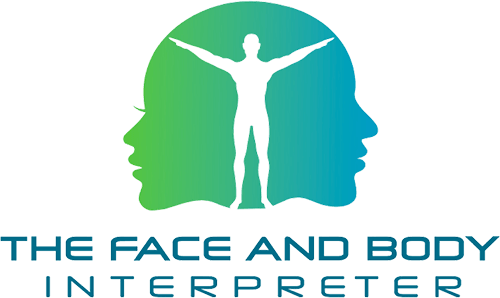
Psychosomatic Insights, Gifts, and Challenges
By Linda Thackray
Your challenge of today, can become your gift of the future!
A “small” chin is characterised by its pointy nature and is often associated with a jaw that is long and narrow. This type of chin shape has specific psychosomatic meanings, including its impact on personality traits, emotional experiences, and sensitivity. People with small chins may wonder what this feature signifies, both physically and emotionally.
In psychosomatic therapy, the chin is considered your ‘base’. It reflects your grounding, security, sensitivity, and sense of belonging, all of which contribute to your overall emotional balance. Those with small chins, and therefore a smaller ‘base’, often feel quite different from others. This difference can manifest as a lack of belonging, fitting in, or feeling safe in their environment. Understanding what this feature represents can provide clarity on personal challenges and gifts.
The Psychosomatic Meaning of a Small Chin
Psychosomatic therapy links facial features, such as the shape of the chin, to inner emotional experiences, revealing much about a person’s internal world. Face reading provides insights into personality traits and helps understand the psychosomatic significance of facial features. A small chin can indicate a person who is highly sensitive and may at times particularly when they are younger, feel ungrounded. They might experience life with an enhanced sense of vulnerability, feeling over exposed and unsettled in social environments. This sensation of being different is intensified if they also have a large domed forehead, which psychosomatically reflects heightened imagination.
A large forehead is often described as the ‘upstairs playing ground’. For individuals with this feature combination, their gift of an active imagination can become a safe space, where they retreat when the world feels overwhelming. However, living too much in their imagination can distance them from their physical body and sense of security. These individuals may need guidance to be understood and to feel more anchored in their bodies and more comfortable in the physical world.
How Does a Small Chin Affect Childhood?
In childhood, those with a small chin may frequently feel like they don’t quite belong. This can manifest as children repeatedly asking their parents if they are adopted. This question often stems from a sense of not fitting in and this can include the family dynamics, further influencing how these children interact with their surroundings.
Parents might struggle to understand the unique communication style of children with small chins, especially if the child’s heightened sensitivity is not immediately obvious. However, recognising this sensitivity early can help parents support their children in developing resilience and self-confidence.
Children with small chins need to be reassured of their capabilities and supported in overcoming fears. Encouraging them to take small steps towards building their inner strength can be transformative. For example, teaching them how to process their emotions without overwhelming themselves can be a valuable life skill.
The Gifts and Challenges of a Small Chin in Adulthood
As adults, those with small chins may find that their sensitivity continues to play a major role in how they perceive the world. Small chin personality traits, such as heightened sensitivity and creativity, can shape how they interact with others. These individuals are often highly creative and attuned to sound and vibration, feeling these sensations more intensely as they move through their bodies. This heightened sensitivity (ability to sense) when out of balance, can lead to reactive behaviour when feeling emotionally or physically unbalanced.
To manage this sensitivity, it is important to practice grounding techniques. For those with small chins, proper breathing can be a powerful tool in maintaining balance. Shallow breathing is common in those who feel anxious or out of control. By learning breathing techniques and to breathe more fully into the body, this can reduce this anxiety and restore a sense of calm.
Adults who have developed a strong jaw to compensate for their small chin may be pushing themselves too hard. While a strong jaw symbolises determination and strength, it can also mask the underlying sensitivity, leading to burnout or even chronic fatigue. Achieving balance between the drive for success (masculine energy) and nurturing one’s sensitive side (feminine energy) is key to avoiding exhaustion and finding harmony.
Tips for Balancing Sensitivity with a Small Chin
- Breathing Exercises: Practicing deep breathing exercises can help those with small chins manage anxiety and remain grounded. Inhale deeply through the nose, hold briefly, and exhale with a longer outbreath to release tension.
- Mindfulness Practices: Grounding techniques, such as mindfulness meditation, walking barefoot in nature, or practicing psychosomatic awareness, can help reconnect with the body and establish a sense of safety.
- Self-Acceptance: Changing the inner dialogue from “I can’t” to “I can” is crucial for building resilience. Reframing self-perception and embracing one’s sensitivity as a gift, rather than a hindrance, is key to thriving.
- Support from Family and Friends: For parents of children with small chins, it’s important to offer encouragement and support them, whilst building skills which assist them to be more self-assured.
- Balancing Masculine and Feminine Energy: For adults, recognising when they are pushing themselves too hard is essential. By balancing the drive to succeed with nurturing their sensitivity, they can avoid burnout and tap into their full potential.
Ready to Understand the Psychosomatic Meaning of a Small Chin?
When mastered, the challenge of sensitivity becomes your greatest gift! Your chin reflects much more than just a physical feature; it holds keys to your sense of security, sensitivity, emotional balance, and grounding. Understanding chin shape meaning through face reading can offer deeper insights into your personality and emotional well-being. If you’re ready to explore the messages that your body is sending you through your facial features, psychosomatic awareness can offer the tools you need to understand yourself better and live with greater harmony.
Take the Next Step
Curious about what your chin says about you? Start your journey into psychosomatic awareness today. Book a Face Reading Consultation and discover how understanding your facial features can bring more grounding, confidence, and emotional clarity into your life.
If you would like to learn more about how to identify features of the face and interpret their meanings, gifts and challenges, we offer Face Reading Courses, which are recommended for personal and professional development. Alternatively you may be interested in the full Psychosomatic Therapy Training.



